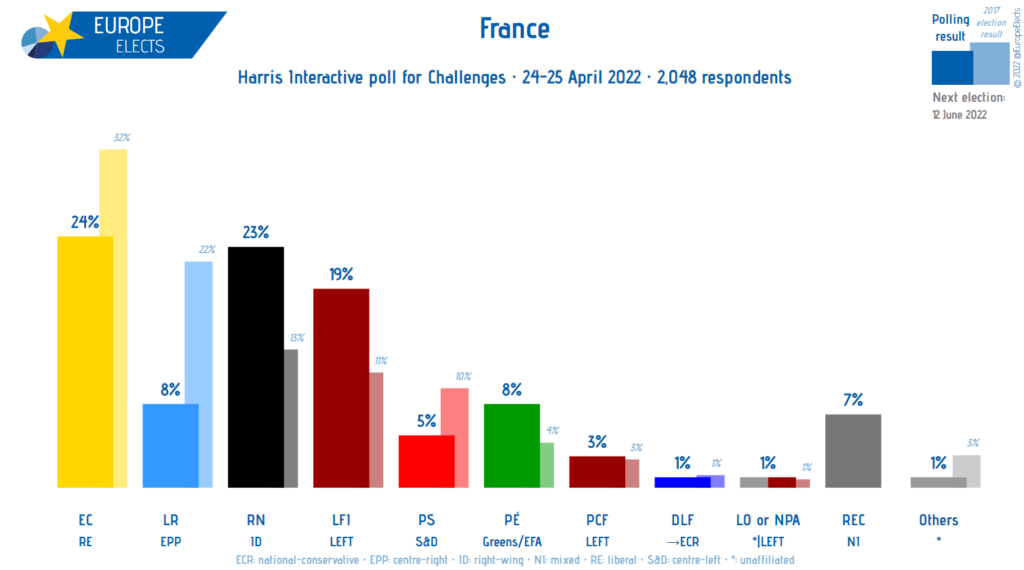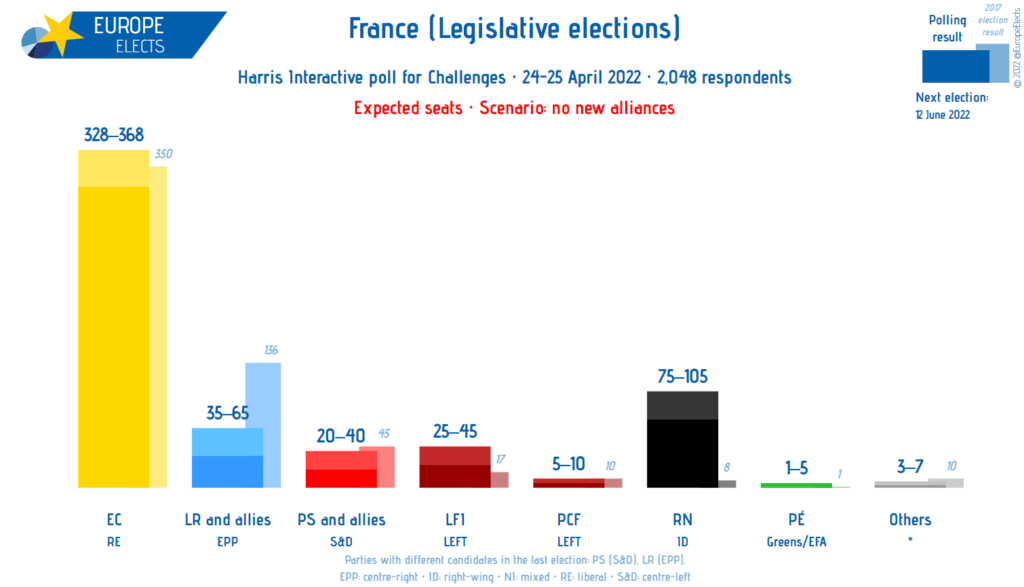The 'old' parties of the Left and Right, the Socialists and The Republicans, got a total of 6.52% in the first round.
From The Post@UnHerd
By Peter Franklin
The country's traditional parties look set to gain few seats at the legislative election
In June, France elects the 16th National Assembly of the Fifth Republic. The previous election in 2017 was a triumph for Emmanuel Macron’s LREM party. Together with their centrist allies, the Macronistes came from nowhere to win 350 out of 577 seats.
Meanwhile the Socialists and their allies were nearly wiped out, losing 286 seats. The conservative Républicains and their allies also suffered — losing 93 seats. It was a political realignment and the collapse of the traditional duopoly of the mainstream Right and Left.
But for the radical Right and Left — i.e. the supporters of Marine Le Pen and Jean-Luc Mélenchon — there was no breakthrough. They gained seats, but not many.
So what will happen this time? Will the legislative elections resemble the presidential election — and deliver another clear victory for Macron? Or will we see the old order reassert itself, as during the regional elections last year (in which the traditional parties dominated, and both Macron and Le Pen were disappointed)?
Via Europe Elects, we now have the first poll, from Harris:

In first place, on 24% of the vote, is Ensemble Citoyens (Citizens Together) which is the centrist alliance dominated by Macron’s party; in second place, on 23%, is Le Pen’s Rassamblement National (National Rally); and in third place on 19% is La France Insoumise (Unbowed France), which is Mélenchon’s party. Note also the 7% for Reconquête (Reconquest) which is Éric Zemmour’s party.
This looks pretty similar to the result of the presidential elections — not least because the parties of the mainstream Right and Left are doing even worse than they did in 2017.
As with the presidential contest, the National Assembly elections use the two round system of voting, which tends to favour centrist candidates. So even on a modest quarter-share of the vote, Macron’s allies could end up with an absolute majority — according to the seat projection:

The populist Right would end up as the second largest presence, followed by the populist Left.
Of course, this is just the first poll. Many things could change between now and the first round of voting on the 12th June. For instance, the various Left-wing parties might form a broad Left electoral alliance. The conservatives, fearing a wipe-out, might throw in their lot with the Macron supporters.
But whichever way one looks at it, the old duopoly is dead. Instead of dividing gently between the mainstream Left and Right, France is now becoming split between three blocks — far Left, far Right and neoliberal — each of which have profoundly different values from the other two.
For the moment, the centre holds because it is disproportionately favoured by the electoral system. The next five years will tell us just how sustainable that arrangement is.
No comments:
Post a Comment
Comments are subject to deletion if they are not germane. I have no problem with a bit of colourful language, but blasphemy or depraved profanity will not be allowed. Attacks on the Catholic Faith will not be tolerated. Comments will be deleted that are republican (Yanks! Note the lower case 'r'!), attacks on the legitimacy of Pope Leo XIV as the Vicar of Christ, the legitimacy of the House of Windsor or of the claims of the Elder Line of the House of France, or attacks on the legitimacy of any of the currently ruling Houses of Europe.